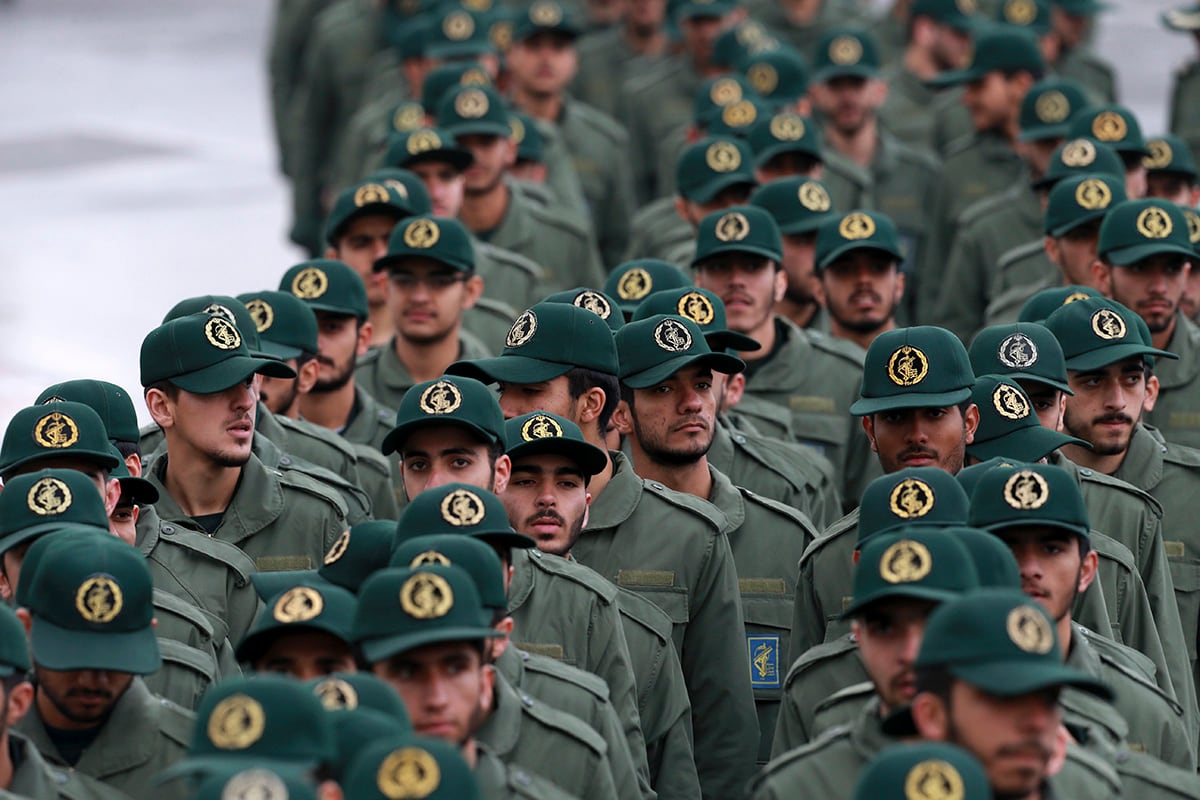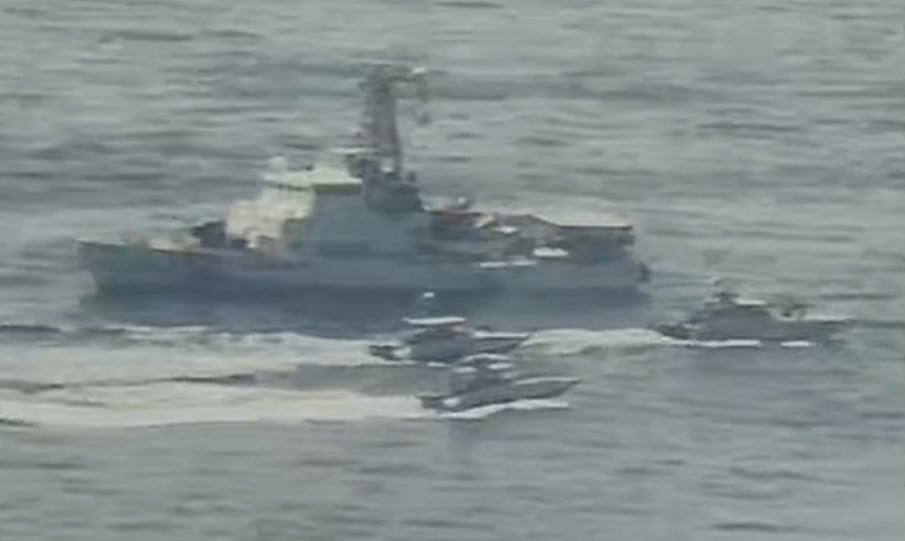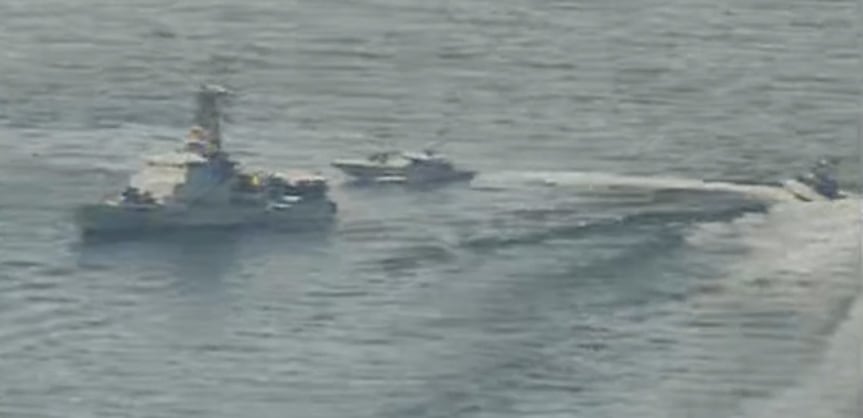On Wednesday 11 Islamic Revolutionary Guard Corps vessels harassed six U.S. warships operating in the north Persian Gulf, according to U.S. Naval Forces Central Command.
U.S. Navy Forces Central Command detailed in a news release that the IRGC vessels “repeatedly conducted dangerous and harassing approaches” of several U.S. warships while the American vessels were conducting air integration exercises with U.S. Army AH-64E Apache attack helicopters.
The 11 Iranian ships carried out an “unsafe” and “unprofessional” interaction with the following U.S. warships: the expeditionary mobile base vessel Lewis B. Puller, the Arleigh Burke-class destroyer Paul Hamilton, Cyclone-class of coastal patrol boat Firebolt, Cyclone-class patrol ship Sirocco, and Coast Guard ships Wrangell and Maui.
RELATED

NAVCENT said the Iranian ships “repeatedly crossed the bows and sterns of the U.S. vessels at extremely close range and high speeds” and even came within 50 yard “closest point of approach” of the Puller and 10 yards of Maui’s bow.
The ships’ crews attempted to warn the Iranian vessels using “bridge-to-bridge radio, five short blasts from the ships’ horns and long range acoustic noise maker devices," NAVCENT said.
After roughly an hour, Iranian ships responded to the bridge-to-bridge radio signals and “maneuvered away from the U.S. ships,” NAVCENT detailed.
“The IRGCN’s dangerous and provocative actions increased the risk of miscalculation and collision, were not in accordance with the internationally recognized Convention on the International Regulations for Preventing Collisions at Sea (COLREGS) “rules of the road” or internationally recognized maritime customs, and were not in accordance with the obligation under international law to act with due regard for the safety of other vessels in the area,” NAVCENT said in the release.

NAVCENT said U.S. forces have been conducting exercises in the north Persian Gulf since late March.
“U.S. naval forces continue to remain vigilant and are trained to act in a professional manner, while our commanding officers retain the inherent right to act in self-defense,” NAVCENT said in the release.
It’s the latest provocation from Iran following a deadly rocket attack in March believed to be carried out by Iran-backed militias targeting coalition troops in Iraq.
Gen. Kenneth F. McKenzie, Jr., the commander of U.S. Central Command, told reporters at the Pentagon in March following a deadly rocket attack in Iraq targeting Camp Taji that Iran may be trying to ratchet up tension due to fallout from COVID-19.

McKenzie warned in March that tensions with Tehran have not come down and may be exacerbated by the high number of COVID-19 deaths in Iran. McKenzie said CENTCOM believed Iran was under-reporting the number of COVID-19 deaths inside the country.
He cautioned that virus may be increasing pressure on Iranian leaders that could push the authoritarian regime to turn outward “to marshal against a common foe."
Shawn Snow is the senior reporter for Marine Corps Times and a Marine Corps veteran.





